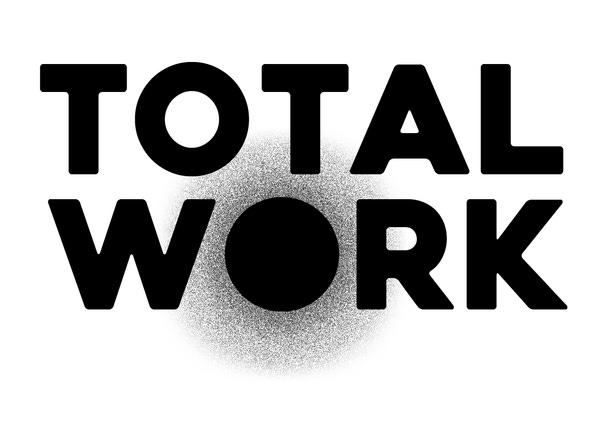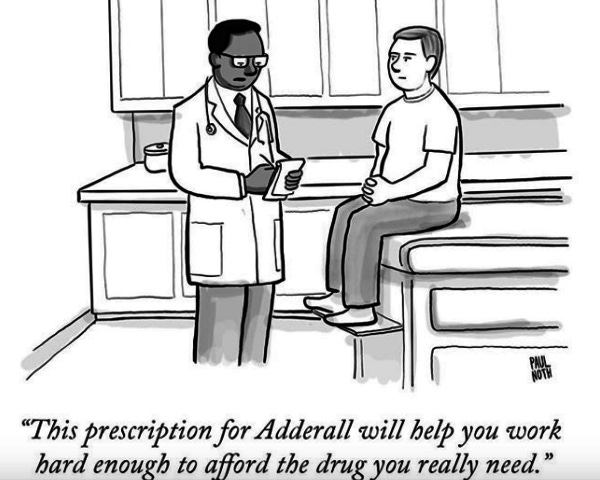Total Work Newsletter #23: I'm An Anticareerist And You Should Be One Too

Total Work, a term coined by the philosopher Josef Pieper, is the process by which human beings are transformed into workers as work, like a total solar eclipse symbolized in the logo above, comes to obscure all other aspects of life. In these newsletters, I document, reflect upon, and seek to understand this world historical process, one that started at least as far back as 1800 and possibly as early as 1500.
Announcement #1: One reader suggested that I do a Q&A. I thought that was a great idea, so if you have any questions about total work and about how it applies to your life, please send those questions to me at totalwork.us@gmail.com. My aim is to pick 10 of the questions to answer in the next issue (#24) of the newsletter.
Announcement #2: My friend Peter Limberg thought I misrepresented Venkatesh Rao’s argument in last week’s issue (#22). In the spirit of justice, I include his reply. Peter writes,
This seems a bit uncharitable to Venkat [Venkatesh Rao] … You wrote, “What I actually deny is that it’s possible to find ultimate fulfillment through work.”
I don’t think he made that propositional claim anywhere. He simply said that to come alive through work, you need to find deeper motivation other than survival. He also softened his stance later on by saying: “Not all economic activities satisfy the necessary conditions to allow solving for aliveness.”
The point is well-taken and, as far as what VGR actually argued, I stand corrected. That said, part of the confusion was owing to my sloppy writing. What I should have said is that the common move I see is that (a) many people try to find fulfillment through work and (b) they go on to put all their eggs in one basket (from finding some fulfillment in work, however hard this may be, to seeking ultimate fulfillment in and through work). While it was clearly a mistake on my part to attribute that move to VGR, the move is, all the same, one that people often make and so is worth keeping an eye out for. To catch a glimpse of what may be truer of more cases of modern work (though we might want to be careful with selection bias), take a look at the Paul Millard tweet below.
The Drug You Really Need

As seen by Alexandra Taggart in The New Yorker
All Work And No Play Makes Jack Worse Than A Dull Boy
#1: STRUCTURAL BADNESS | The Case Against Work | 5 min. | TPM | Opinion
TPM Sum: “John Danaher argues that work is a bad thing.”
My Brief Sum: Danaher argues for what he terms the Structural Badness Thesis–namely, that the “labour market in most developed countries has settled into an equilibrium pattern that makes work very bad for many people, and it is getting worse as a result of technical and institutional changes.” He cites three reasons we should conclude that paid work is generally bad for people: (i) the employer’s encroachment on the individual’s freedom, (ii) fissuring and greater precarity, and (iii) the way paid work colonizes the individual’s mind.
#2: KNOCKING OFF | Why You Should Slack Off to Get Some Work Done | 3 min. | WIRED | Opinion HT Paul Millerd
Wired Sum: “Science is increasingly finding that there’s enormous value in working much less each day—and relaxing far more. It might even be the secret to true productivity.”
A Conceptual Mess: This piece at least gets right that human beings do well to move in relatively brief energetic bursts. We find this increasingly in exercise (e.g., Tabata training), in acts of creation, in times of genuine leisure, and so on. So far, so good. The trouble with this piece is that it mucks up so many concepts: (i) leisure, (ii) rest, (iii) creativity (as opposed to productivity, etc. What’s more, it continues the long line of instrumentalizing rest by putting it in the service of greater productivity. I wonder whether it would be possible to see the Sabbath, a day of rest, as being an intrinsic good…
#3: SUICIDE | Farmers in America Are Killing Themselves in Staggering Numbers | 3 min. | CBS | News
CBS Sum: “Farming has by far the highest suicide rate of any occupation in the U.S. – plummeting incomes may be one reason.”
My Brief Take: I imagine this story is alluding to a broader plight people living in rural parts of the American Midwest are grappling with. Which is the loss of ways of making decent livings. Let me also add that quite inexcusably the author of this piece didn’t interview any farmers, loggers, or fishermen, only technocratic and university experts. You’d think that farmers in particular might have something important to say about the matter.
#4: MARATHON CAREERS | Stanford Psychologist Laura Carstensen Says Careers Should Be Mapped For Longer Lifespans | 3 min. | Quartz | Reporting
Quartz Sum: “Life is arranged all wrong for the modern worker.”
My Ambivalent Take: On the one hand (and being charitable), I can see the argument for “marathon careers” simply being a clumsy way of speaking about what work was like during a pre-industrial period: less regular, more in line with the needs of, say, the seasons, less intense overall (with periods of intensity as when harvesting needs to be done). On the other hand, I can also read this piece as an argument for total work: work remains central as it spreads itself over more of life and as a neologism–the marathon career vs. the career as sprint–tries to capture this novel manifestation of total work. I’m not sure which way to interpret this piece.
Slowly And Marginally And Then All At Once...
I have talked to at least one person in their 20s, 30s, 40s, 50s, and 60s in the last week who more or less says that work is destroying their lives. How does this happen? Slowly and marginally and then all at once. Hard to escape. #totalwork
10:49 AM - 22 Jun 2018
I'm An Anticareerist And You Should Be One Too
Brief Preface
I’m interested in careers and careerism for the principal reason that it’s one expression of the spirit of total work, one way, that is, in which work becomes central to our lives and to our identities. So, I turn to that fiery piece now.
Anticareerism in a Strong Sense
I despise careers. Not this or that career but all careers. I mean I despise the concept of the career because I think it’s a bad - and destructive - idea.
I’m an anticareerist. D. JoAnne Swanson is the founder of The Anticareerist, a website devoted to anticareerist ideas, and Kate McFarland is a proponent of an anticareerist lifestyle. McFarland defines an anticareerist as “someone who chooses to reject the pursuit of a career in his or her own life.” Which makes me an anticareerist in an even stronger, or objective, sense since I believe that putting any career front and center in one’s life, regardless of who one is or whichever career path one is on, is a bad and destructive idea.
My aim is to convince you of this.
[You can read the rest of the piece (about 1500 words) on Medium. It’s a fiery one that won’t disappoint.]
- - - - -
Comments, Suggestions, Articles on Total Work?
Feel free to send comments, suggestions, thoughts, and articles about total work to me at Andrew Taggart <totalwork.us@gmail.com>.
If You’d Like to Become a Patron…
Thank you to all my current patrons! If you feel called to support my philosophical life, you can do so here <https://www.patreon.com/ajt>.
For Newcomers
Looking for some clarity about the nature and history of total work? Start by reading my brief overview of total work on my Patreon account <https://www.patreon.com/ajt>, Next, take a look at the first issue of this newsletter <https://www.getrevue.co/profile/andrewjtaggart/issues/total-work-newsletter-1-working-ourselves-into-a-frenzy-89819.> Next, check out my Quartz at Work pieces (December 2017- present), which are available here <https://work.qz.com/author/andrew-taggart>. Lastly, visit my website, totalwork.us <https://totalwork.us>, which is devoted to investigating this topic and which is also still under construction.


